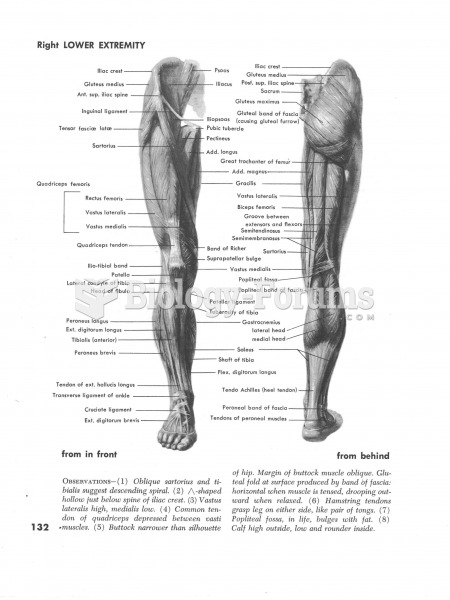Answer to Question 1
Correct Answer: 2,4,5
Rationale 1: Increasing the intake of alcohol, including wine, is not a positive lifestyle change associated with the nonpharmacologic treatment of hypertension. The client should be encouraged to decrease the intake of alcohol.
Rationale 2: Restricting sodium intake is a positive lifestyle change associated with the nonpharmacologic treatment of hypertension.
Rationale 3: Increasing the intake of saturated fat is not a positive lifestyle change associated with the nonpharmacologic treatment of hypertension. The client should be encouraged to decrease the intake of red meat and other sources of saturated fat.
Rationale 4: Increased activity, especially aerobic activity, is a positive lifestyle change associated with the nonpharmacologic treatment of hypertension.
Rationale 5: Eliminating tobacco products is a positive lifestyle change associated with the nonpharmacologic treatment of hypertension.
Global Rationale: Restricting sodium intake is a positive lifestyle change associated with the nonpharmacologic treatment of hypertension. Increased activity, especially aerobic activity, is a positive lifestyle change associated with the nonpharmacologic treatment of hypertension. Eliminating tobacco products is a positive lifestyle change associated with the nonpharmacologic treatment of hypertension. Increasing the intake of alcohol, including wine, is not a positive lifestyle change associated with the nonpharmacologic treatment of hypertension. The client should be encouraged to decrease the intake of alcohol. Increasing the intake of saturated fat is not a positive lifestyle change associated with the nonpharmacologic treatment of hypertension. The client should be encouraged to decrease the intake of red meat and other sources of saturated fat.
Answer to Question 2
Correct Answer: 3
Rationale 1: Eliminating alcohol is important, but not the priority outcome.
Rationale 2: Decreasing stress is important, but not the priority outcome.
Rationale 3: Achieving and maintaining optimum weight is of greatest importance when a client has hypertension. For obese clients, a 10- to 20-lb weight loss can produce a measurable change in blood pressure.
Rationale 4: A balanced diet is important, but not the priority outcome.
Global Rationale: Achieving and maintaining optimum weight is of greatest importance when a client has hypertension. For obese clients, a 10- to 20-lb weight loss can produce a measurable change in blood pressure. Eliminating alcohol, decreasing stress, and a balanced diet are all important, but they are not the priority outcome.







